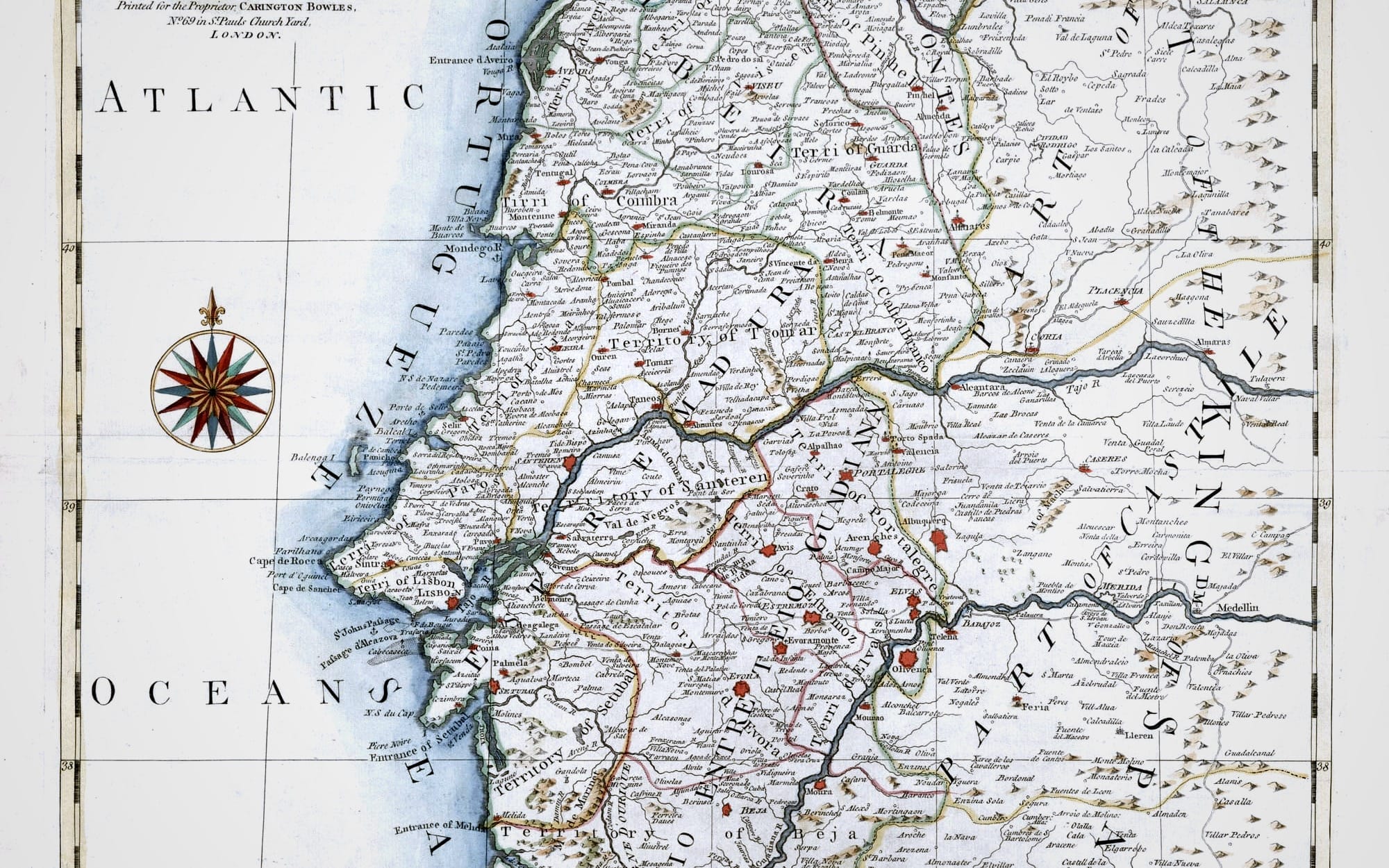The Portuguese government offers a special path to citizenship for descendants of Sephardic Jews, requiring certification from Jewish communities and specific documentation - here is the key context and information you need.
Understanding Sephardic Jewish Heritage and the Portuguese connection

The connection of Sephardic Jewish heritage to Portugal represents a significant chapter in both Jewish and Portuguese history, spanning centuries of cultural exchange, persecution, and eventual reconciliation. This comprehensive overview explores the concept of citizenship by descent for the Sephardic community of Portuguese origin, with opportunities for descendants to reclaim Portuguese nationality.
Historical background and origins of the Sephardic community
The Sephardic Jewish presence in the Iberian Peninsula dates back to the Roman period, with communities flourishing particularly during the medieval era. In Portugal, these communities played vital roles in commerce, scholarship, and cultural development until the Inquisition period.

Following the expulsion from Spain in 1492, thousands of Spanish Jews sought refuge in Portugal, significantly increasing the country's Jewish population.
The impact of the Portuguese Inquisition
In 1496, King Manuel I of Portugal issued a decree forcing Jews to either convert to Christianity or leave the country. This period marked the beginning of a diaspora that scattered Sephardic families across the globe, from North Africa to the Ottoman Empire, and later to the Americas. Many families maintained their traditions, customs, and even the Ladino language (Judeo-Spanish) in their new homes.
Key Historical Facts:
- Over 60,000 Spanish Jews initially found refuge in Portugal in 1492
- The Portuguese Inquisition officially lasted from 1536 to 1821
- Thousands of Sephardic families preserved their Portuguese Jewish customs across generations
Cultural heritage and identity markers
Sephardic Jewish identity has been preserved through various cultural elements, including:
- Traditional family names (surnames) of Portuguese origin
- Religious customs and liturgical traditions
- Culinary practices and dietary laws
- Family documents and genealogical records
- Community records from synagogues worldwide
Modern recognition and reconciliation
In 2015, the Portuguese government enacted a law allowing descendants of Sephardic Jews to apply for Portuguese nationality, representing a historic act of reconciliation. This initiative, supported by both the Jewish Community of Lisbon (CIL) and Porto (CIP), has attracted thousands of applications from around the world.
Cultural legacy in contemporary Portugal
Today, Portugal's Sephardic heritage is visible in various forms, from restored synagogues in cities like Lisboa and Porto to cultural centers and museums dedicated to Jewish history. The country has embraced this aspect of its identity, with many Portuguese citizens taking pride in this rich cultural legacy.
Pro Tip: When researching Sephardic ancestry, look beyond just family names. Consider family traditions, customs, and oral histories that may have been passed down through generations, as these can provide valuable evidence of Sephardic heritage.
This historical connection continues to strengthen as more descendants of Sephardic Jews reconnect with their Portuguese roots, contributing to a vibrant revival of Jewish life in modern Portugal. The process of reclaiming Portuguese nationality has become a symbol of historical justice and cultural preservation, bridging centuries of separation between the Sephardic diaspora and their ancestral homeland.
The Legal Framework: Portugal's Law for Sephardic Jewish Descendants

In 2015, Portugal enacted a groundbreaking law allowing descendants of Sephardic Jews to apply for Portuguese nationality, marking a historic attempt to reconcile with its past. This legislation, established through Decree-Law 30-A/2015, provides a clear framework for the naturalization process of Sephardic Jewish descendants.
Understanding the legal basis
The Portuguese nationality law for Sephardic Jews is rooted in the recognition of historical injustices during the Inquisition period. The legislation enables descendants of Portuguese Sephardic Jews to obtain Portuguese citizenship without requiring residence in Portugal or knowledge of the Portuguese language.
Key Takeaway: Unlike traditional naturalization processes, this law doesn't require applicants to establish legal residence in Portugal or demonstrate Portuguese language proficiency.
Certification requirements and process
The process involves two main stages:
- Obtaining certification from either the Jewish Community of Lisbon (CIL) or Porto (CIP)
- Submitting the nationality application to the Portuguese Ministry of Justice
The certification process requires demonstrating Sephardic ancestry through various forms of evidence, including:
- Family records and documents
- Genealogical documentation
- Historical records
- Community testimonials
Documentation requirements
Applicants must submit several mandatory documents:
- Birth certificate with parents' names
- Valid passport copy
- Criminal record certificates from countries of residence
- Proof of Sephardic heritage
- Genealogical tree (maximum two pages)
- Certificate of current residence
Administrative process and timeline
The application process typically follows these steps:
- Submission of documents to the Jewish Community
- Payment of required fees and donations
- Review by the community's expert committee
- Issuance of the Sephardic certificate
- Application to the Central Registry Office
Current processing times average around 18 months, though this can vary significantly based on application volume and complexity.
Legal implications and benefits
Successful applicants gain full Portuguese citizenship rights, including:
- European Union citizenship
- Right to live and work in any EU country
- Visa-free travel to numerous countries
- Access to Portuguese social and educational systems
Pro Tip: While the law doesn't require Portuguese language skills, learning basic Portuguese can significantly enhance integration opportunities for new citizens.
Since its implementation, this law has led to the naturalization of thousands of Sephardic descendants, with applications coming from countries worldwide. The Portuguese government has maintained strict verification procedures to ensure the legitimacy of claims while honoring its commitment to historical reconciliation.
The legal framework continues to evolve through administrative practices and judicial interpretations, making it essential for applicants to work with qualified professionals familiar with the latest requirements and procedures.
Essential documentation and eligibility requirements for citizenship
The process of obtaining Portuguese nationality for descendants of Sephardic Jews requires careful attention to documentation and eligibility requirements. Understanding these requirements is crucial for a successful application under Portugal's groundbreaking citizenship law.
Basic eligibility criteria
Applicants seeking Portuguese citizenship through Sephardic Jewish heritage must demonstrate their connection to Portugal's Sephardic communities. According to recent statistics, over 56,000 applications have been processed since 2015, highlighting the significance of this pathway to Portuguese nationality. The fundamental requirement is proving Sephardic Jewish ancestry with links to Portugal, though direct Portuguese ancestry is not mandatory due to historical circumstances involving Spain.
Primary documentation requirements
- Personal Identification Documents - Valid passport (minimum 6 months validity) - Birth certificate (issued within last 6 months) - Proof of current residence
- Legal Documentation - Criminal record certificates from country of birth and residence - Power of attorney (if applicable) - Official application form from the Portuguese government
- Heritage Documentation - Detailed genealogical tree (maximum 2 pages) - Jewish Community Certificate from either Lisbon or Porto - Supporting evidence of Sephardic ancestry
Genealogical evidence and supporting documentation
Applicants must provide comprehensive genealogical evidence to support their claim. This includes:
- Family records and certificates
- Historical documents showing Sephardic ancestry
- Family photographs or documentation of Jewish ceremonies
- Evidence of family names with Sephardic origin
- Documentation of family traditions and customs
Pro Tip: Organization is crucial. Submit documents in chronological order and ensure all translations are certified by appropriate authorities. This can significantly reduce processing time, which currently averages 18-24 months.
Application process and submission
The application process involves two main phases:
- Obtaining certification from either the Jewish Community of Lisbon (CIL) or Porto (CIP)
- Submitting the complete application to the Portuguese Central Registry Office (Conservatória dos Registos Centrais)
Additional requirements and considerations
Several key factors influence the application process:
- All documents must be translated into Portuguese by certified translators
- Documents require authentication with the Hague Apostille or Portuguese consular certification
- A non-refundable fee of €250 must be paid to the Central Registry Office
- Applications can be submitted without Portuguese language proficiency
- Physical presence in Portugal is not required during the application process
Important: While knowledge of Ladino or Portuguese Jewish customs can strengthen an application, they are not mandatory requirements for citizenship approval.
Successful applications typically demonstrate a clear connection to Sephardic Jewish heritage through multiple forms of evidence, creating a comprehensive picture of the applicant's ancestral ties to Portugal's Jewish community.
The Application Process: From Jewish community certificate to Portuguese nationality

The journey from proving Sephardic Jewish heritage to obtaining Portuguese nationality involves a structured, multi-step process that requires careful attention to detail and proper documentation. This comprehensive guide outlines the essential stages and requirements for descendants of Sephardic Jews seeking Portuguese citizenship.
Initial application to Jewish communities
The process begins with obtaining certification from either the Jewish Community of Lisbon (CIL) or Porto (CIP). These are the only two organizations legally authorized by the Portuguese government to issue Sephardic Jewish heritage certificates. According to recent statistics, approximately 86% of applications are processed through these communities, with an average processing time of 12-18 months.
Documentation requirements and submission
- Completed official application form
- Valid passport copy (minimum 6 months validity)
- Birth certificate with parents' names
- Detailed genealogical tree (maximum 2 pages)
- Supporting documentation of Sephardic ancestry
- Family memory statement
- Criminal record certificates
Pro Tip: Organize documents chronologically and create a digital copy of all materials in a single PDF file to expedite the review process.
Review and certification process
The Jewish communities employ expert committees to evaluate applications based on several criteria:
- Genealogical evidence connecting to Sephardic Jewish communities
- Family surnames and their historical significance
- Documentation of family traditions and customs
- Historical records and community connections
Ministry of Justice application
Upon receiving the Jewish community certificate, applicants must submit their nationality application to the Portuguese Central Registry Office (Conservatória dos Registos Centrais). This stage requires:
- The original Sephardic Jewish certificate
- Apostilled and translated documents
- Payment of the €250 processing fee
- Additional supporting documentation
Final steps and timeline
The complete process typically takes between 18-24 months from initial application to citizenship approval. Recent data shows that approximately 23,000 applications have been approved since 2015, with a success rate of about 92% for properly documented cases.
Key Takeaway: Applicants should maintain regular communication with both the Jewish community and the Ministry of Justice throughout the process, as additional documentation may be requested at any stage.
Once Portuguese nationality is granted, individuals can apply for a Portuguese passport, which provides full European Union citizenship rights and privileges. The process represents a significant opportunity for descendants of Sephardic Jews to reclaim their ancestral connection to Portugal while gaining access to the European Union.
Role of Portuguese Jewish Communities in Lisbon and Porto
The Jewish Communities of Lisbon (CIL) and Porto (CIP) play a pivotal role in Portugal's initiative to grant citizenship to Sephardic Jewish descendants. These organizations serve as the official gatekeepers and validators of Sephardic heritage claims, operating under the authority granted by the Portuguese government through Decree-Law n.º 30-A/2015.
Historical significance and modern functions
These communities represent the continuation of centuries-old Jewish presence in Portugal, with the Lisbon community tracing its modern organization back to 1892. Today, they serve dual functions: maintaining Jewish religious and cultural life while acting as official certifying bodies for Sephardic citizenship applications. According to recent statistics, these communities have processed over 62,000 applications since 2015, with approximately 56,685 certifications issued through 2022.
The certification process in Lisbon
The Jewish Community of Lisbon (CIL) maintains a structured approach to certification, including:
- A dedicated administrative staff for application processing
- An expert committee specializing in Sephardic genealogy
- A certification committee for final approval
Pro Tip: Applications submitted to CIL should include comprehensive genealogical documentation organized chronologically to expedite the review process.
Porto's Jewish Community role
The Jewish Community of Porto (CIP) operates parallel to CIL, with some distinct characteristics:
- Maintains its own genealogical research department
- Houses the Jewish Museum of Porto
- Provides additional cultural documentation services
Collaborative framework with government authorities
Both communities work in close coordination with Portuguese governmental bodies, particularly:
- The Ministry of Justice
- The Central Registry Office (Conservatória dos Registos Centrais)
- Portuguese consulates worldwide
Impact on Portuguese Jewish Heritage
The certification program has led to significant developments in Portuguese Jewish life:
- Revitalization of Jewish cultural activities
- Enhanced preservation of Sephardic heritage
- Strengthened international Jewish connections
Key Statistics:
- Average processing time: 12-18 months
- Certification success rate: approximately 85%
- Combined annual applications: 5,000-7,000
Future perspectives
The communities continue to evolve their roles, focusing on:
- Digitalization of certification processes
- Enhanced documentation verification methods
- Preservation of Sephardic cultural heritage
- Educational initiatives about Portuguese-Jewish history
Through their careful stewardship of the certification process, these communities ensure that Portugal's commitment to reconnecting with its Sephardic Jewish heritage maintains its integrity while facilitating meaningful connections with descendants worldwide.
Proving Sephardic Ancestry: Acceptable Forms of Evidence
For descendants of Sephardic Jews seeking Portuguese nationality, providing adequate evidence of Sephardic ancestry is a crucial step in the application process. The Portuguese law requires comprehensive documentation that demonstrates a genuine connection to Sephardic Jewish communities of Portuguese origin.
Primary Categories of Evidence
The Jewish communities of Lisbon and Porto recognize several categories of evidence when evaluating applications for Sephardic certification. These documents collectively help establish the applicant's connection to Portuguese Sephardic heritage:
- Genealogical Documentation - Family trees, birth certificates, marriage records
- Historical Records - Inquisition documents, community registries, historical texts
- Family Traditions - Documented customs, religious practices, use of Ladino
- Community Certificates - Statements from recognized Jewish communities
Documentary evidence requirements
The Portuguese authorities require specific documentation that must be submitted in a precise format:
Essential Documentation Checklist:
- Official application form
- Valid passport copy
- Birth certificate with parental information
- Proof of current residence
- Criminal record certificates
- Genealogical tree (maximum 2 pages)
Genealogical evidence standards
The genealogical documentation must meet specific criteria established by the Portuguese Registry Office (Conservatória dos Registos Centrais). Family trees should include:
- Complete names of ancestors
- Dates and locations of births, marriages, and deaths
- Documentation supporting family connections
- Evidence of Sephardic surnames or name changes
Supporting cultural evidence
Beyond official documents, applicants can strengthen their cases by providing evidence of cultural connections:
- Family customs and traditions documentation
- Photographs of Jewish ceremonies and celebrations
- Written testimonies from community leaders
- Evidence of Ladino language use in the family
Authentication requirements
All submitted documents must meet strict authentication standards:
- Translations into Portuguese by certified translators
- Apostille certification for international documents
- Notarization of copies where required
- Verification by Portuguese consular services
Pro Tip: Organize all documents chronologically and create a detailed index to facilitate the review process by the Jewish Community committees. This can significantly expedite the certification process.
The evaluation process by the Portuguese Jewish communities is thorough and may take several months. Applicants should ensure all documentation is complete and properly authenticated before submission to avoid delays in the certification process.
Timeline, costs, and important deadlines for 2025
As the process for Portuguese nationality for Sephardic Jewish descendants continues to evolve, understanding the timeline, associated costs, and crucial deadlines for 2025 is essential for successful application planning. This comprehensive guide outlines the key temporal and financial aspects of the process.
Application timeline overview
The complete process for obtaining Portuguese nationality typically follows this timeline:
- Pre-application documentation gathering: 3-6 months
- Jewish Community Certificate processing: 6-8 months
- Ministry of Justice review: 18-24 months
- Final citizenship confirmation: 2-3 months
Pro Tip: Applicants should begin gathering documentation at least one year before intended submission to ensure all papers meet validity requirements.
Associated costs and fees
The total cost structure for 2025 applications includes:
- Jewish Community of Lisbon/Porto processing fee: €500
- Document translation services: €200-600
- Conservatória dos Registos Centrais application fee: €250
- Apostille certification: €20-50 per document
- Legal representation (optional): €2,000-5,000
Critical deadlines and document validity
Several documents must meet specific timing requirements:
- Criminal record certificates: Must be issued within 90 days of application
- Birth certificates: Must be issued within 6 months of application
- Passport validity: Must have at least 6 months remaining
- Document translations: Must be certified within 3 months of submission
Processing timeframes by stage
Understanding the duration of each stage helps applicants plan effectively:
- Initial document review by Jewish Community: 2-3 weeks
- Genealogical assessment: 3-4 months
- Certificate issuance: 1-2 months
- Central Registry review: 18-24 months
- Final citizenship confirmation: 2-3 months
Important Note: Due to high application volumes, processing times may extend beyond these estimates. The Portuguese government recommends maintaining valid contact information throughout the process.
2025 specific considerations
For applications in 2025, applicants should note:
- Digital submission requirements have been enhanced
- Pre-screening processes have been implemented
- Additional documentation may be requested for family applications
- Online tracking systems are now available
The process requires careful attention to timing and detail. Successful applications typically result from thorough preparation and adherence to deadlines. Working with experienced legal professionals can help navigate these requirements effectively, though this is not mandatory.
Applicants should maintain copies of all submitted documents and keep track of submission dates and deadlines. Regular communication with the Portuguese Jewish Communities and the Central Registry Office is recommended to ensure smooth processing of applications.
Common challenges and Frequently Asked Questions
When pursuing Portuguese nationality as a descendant of Sephardic Jews, applicants often encounter various challenges and questions throughout the process. Understanding these common issues and their solutions can help streamline the application journey.
Primary documentation challenges
One of the most significant hurdles applicants face is gathering comprehensive genealogical documentation. According to recent data from the Portuguese Jewish communities, approximately 30% of initial applications require additional documentation due to incomplete family records. The most challenging documents to obtain typically include:
- Historical birth, marriage, and death certificates from multiple countries
- Proof of Sephardic ancestry beyond three generations
- Documentation of name changes throughout family history
- Evidence of connection to Portuguese Sephardic communities
Language and translation issues
All documentation must be submitted in Portuguese, Spanish, French, or English. Documents in other languages require certified translations, which can add both time and cost to the process. The Jewish Community of Lisbon reports that approximately 45% of applications include documents requiring translation services.
Timeline management
Managing expectations regarding processing times is crucial. Current statistics show:
- Jewish Community Certificate: 6-12 months
- Conservatória dos Registos Centrais review: 12-24 months
- Total process duration: 18-36 months on average
Pro Tip: Begin gathering documentation early, particularly for records from multiple countries, as this can significantly reduce delays in the application process.
Frequently Asked Questions: Portuguese Sephardic Jewish Citizenship
What is a “comunidade-israelita” and why are they important in this process?
The comunidade-israelita (Jewish communities) of Lisbon (CIL) and Porto (CIP) are the only two organizations legally authorized by the Portuguese government to certify Sephardic Jewish heritage. Their certification is a mandatory first step in the citizenship application process.
What are the following documents needed for the application?
The essential documents include: a valid passport, birth certificate (issued within 6 months), criminal record certificates from your country of residence, proof of current residence, and a detailed genealogical tree (maximum 2 pages). All documents must be properly translated and authenticated.
Do I need a notary for my application?
Yes, many documents in your application will require notarization or authentication. This includes document copies and translations, which must be certified by appropriate authorities or notaries.
Do I need to own real estate in Portugal to apply?
No, owning real estate in Portugal is not a requirement for the Sephardic Jewish citizenship program. You don't need to have any physical presence or property in Portugal to apply.
Is a residence permit required before applying for citizenship?
No, one of the unique aspects of this program is that it doesn't require a residence permit or any minimum stay in Portugal before applying for citizenship.
Does family language history matter in the application?
Yes, knowledge of Ladino (Judeo-Spanish) or evidence of Portuguese Jewish customs and traditions in your family can strengthen your application, though it's not mandatory. Family language traditions can serve as supporting evidence of Sephardic heritage.
What are the following requirements after receiving the Jewish community certificate?
After receiving the certificate, you must submit your application to the Portuguese Central Registry Office (Conservatória dos Registos Centrais) along with all required documents and pay the €250 processing fee. The application will then undergo final review.
How long does the entire process take?
The complete process typically takes 18-36 months, including 6-12 months for the Jewish community certificate and 12-24 months for the Central Registry review.
What are the total costs involved?
The main costs include:
- Jewish Community processing fee: €500
- Central Registry application fee: €250
- Document translation: €200-600
- Authentication/Apostille fees: €20-50 per document
- Optional legal representation: €2,000-5,000
Do I need to speak Portuguese to apply?
No, Portuguese language proficiency is not required for this specific pathway to citizenship, unlike other Portuguese naturalization processes.
Can my whole family apply together?
While family members can submit applications simultaneously, each application must be processed individually, with separate fees and documentation required for each person.

